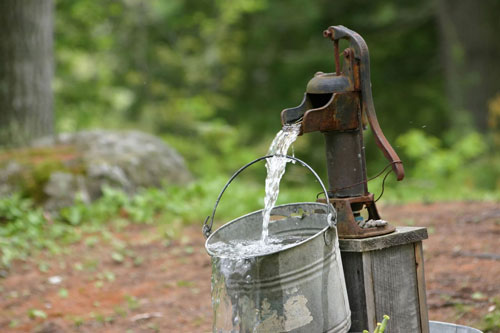While the idea of well water often invokes images of pristine springs, the reality can be more complex. Despite its appearance, well water is susceptible to contamination, posing potential risks to both health and the overall well-being of your home. Let’s explore each sign in greater detail to empower you with a nuanced understanding of potential well water issues:
1. Unpleasant Odor or Taste
Water, when pure, should be devoid of any discernible taste or odor. If you notice a sudden change, perhaps a musty or earthy smell, or an unusual taste in your well water, it could be indicative of contamination. Bacteria, algae, and certain minerals are common culprits. Pay attention to any shifts in sensory qualities and, if detected, investigate promptly.
2. Discoloration
The color of your well water can be a visual indicator of its health. Clear, transparent water is the goal. Any deviation, such as a yellow or brown tint, might be signaling trouble. Sediment, rust, or the presence of metals like iron or manganese can cause discoloration. Not only does this affect the aesthetics of your water, but it can also have detrimental effects on your plumbing systems.
3. Presence of Sediment
While we expect water to be clear, the presence of visible particles or sediment is a cause for concern. This could be an indication of various issues, from soil infiltration to decaying organic matter. Regularly inspect your water for any signs of unusual debris or cloudiness, as these can provide early warnings of potential contamination.

4. Changes in Water Pressure
A sudden change in water pressure can be a symptom of underlying issues within your well system. Leaks, blockages, or problems with the well pump might compromise the well’s integrity, allowing contaminants to infiltrate. Monitoring your water pressure and addressing any unexplained fluctuations promptly is essential for maintaining a healthy well system.
5. Water Testing Results
Regular water testing is the cornerstone of well water safety. Testing for bacteria, nitrates, lead, and other contaminants is vital to assess water quality accurately. If your test results reveal elevated levels of any harmful substances, immediate action is necessary. Ignoring such results can have far-reaching consequences for both your health and the longevity of your well system.
6. Unexplained Health Issues
Sometimes, the impact of contaminated well water manifests in the health of those consuming it. Unexplained gastrointestinal problems, skin irritations, or other health issues within your household might be linked to waterborne contaminants. Seeking professional medical advice and conducting additional water tests can help identify and address potential health risks associated with your well water.
7. Proximity to Potential Sources of Contamination
The old adage “prevention is better than cure” holds true for well water. The location of your well plays a pivotal role in its vulnerability to contamination. If your well is situated near septic tanks, agricultural fields, or industrial sites, the risk of contamination increases. Being aware of potential sources of pollution and taking proactive measures to safeguard your well is essential for long-term water quality.
Maintain the Quality of your Well Water with Atlantic Blue Water Center
Maintaining a safe and reliable well water supply demands a multi-faceted approach. The signs of contamination discussed here serve as crucial indicators that should not be ignored. Regular testing, meticulous well maintenance, and an astute awareness of potential contamination sources are paramount to ensuring a clean and dependable water source for your home. By staying informed and taking swift, informed action, you can protect not only the quality of your well water but also the health and well-being of your family. Water is life, and ensuring its purity is a responsibility we must embrace for a thriving, healthy household. To schedule a water test and ensure the quality of your water, give Atlantic Blue Water Center a call today at 410-751-9200.
